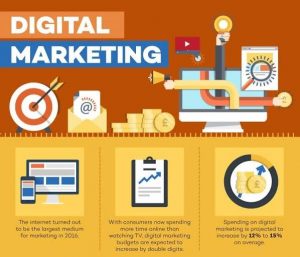In the modern world of marketing, there are several types of marketing with somewhat descriptive names: digital marketing, social media marketing, email marketing, content marketing.But what about those marketing methods with less clear designations, such as internal marketing, life cycle marketing and experiential marketing? The next time you hear an unfamiliar marketing term, check out a glossary of marketing types and methods.
CLICK HERE: SEO Services Company UAE.
1. Account Based Marketing:
Account based marketing is a B2B marketing strategy that focuses on individual corporate clients rather than the public or the market. It tends to be highly targeted and personal, using knowledge about the customer’s specific account to customize marketing campaigns, messages and creative assets according to the characteristics, needs and preferences of each account.
2. Marketing Acquisition:
Most companies do at least some acquisition marketing amount. As its name implies, acquisition marketing is a marketing strategy aimed at attracting new clients. He can use any number of tactics, including search engine optimization, digital advertising, customer generation, anything designed to persuade a new customer to buy your product or service.
3. Affiliate Marketing:
If you’ve ever read a product report online that includes links to purchase premium products, you encounter affiliate marketing. With affiliate marketing, the online retailer pays a commission to third parties (affiliates) that promote their products and send customers to their site for purchase.
4. Awareness Marketing:
When you want to increase the visibility of your company, product or service, awareness marketing can help get your brand on the radar with your target audience, create brand recognition, and lay the foundation for future shifts and sales.
5. Brand Marketing:
Instead of promoting a specific product or service, brand marketing focuses on the brand’s personality, purpose, and character, with the goal of establishing emotional contact with customers. She often uses humor, storytelling, and inspirational messages.
6. The Reason For Marketing:
Because of marketing, the profit-making company is aligned with a charity, movement, or non-profit cause in order to do a good job and show potential customers their charitable tendencies, which we hope will lead customers to feel satisfied with the brand and want to do business with her.
7. Experiential Marketing:
Also called interactive marketing, experiential marketing is centered around a real experience such as a personal event or interactive show designed to create a stronger link between a brand and a customer by allowing people to experience a brand or product in concrete, hands-on training on the road.
8. Guerrilla Marketing:
You know all those mall stalls that distribute samples to unsuspecting shoppers? This is guerrilla marketing. Guerrilla marketing takes advantage of densely populated areas to raise brand awareness and spread the word about a product or service.
9. Internal Marketing:
Traditional external marketing, where things are directed to consumers (emails, advertisements, etc.) in the hope of making a sale. With internal marketing, you create high-quality content specifically designed to attract your ideal customer and attract them to your brand.
10. Influencer Marketing:
With influencer marketing, a company or brand finds a “famous” person with huge social media that is closely related to the target audience of the brand, and pushes the influencer to mention their products or promote their fans.
11. Lifecycle Marketing:
With the Lifecycle Marketing, the brand provides targeted communications, marketing or advertising based on where the customer is in the buying cycle – from awareness and consideration, to the first purchase, and ends up becoming a repeat customer and advocating the brand.
12. Permission Marketing:
Permission marketing is any type of marketing in which a trademark obtains permission from someone to send advertisements or targeted or customized content. Rather than interrupting people’s activities and caring for ads or spam, permission marketing enables brands to deliver messages and deals that the customer explicitly stated they want, leading to higher conversion rates.
13. Relationship Marketing:
As the name implies, marketing relationships focus on developing deeper relationships with clients to ensure brand loyalty over the long term. Unlike brands that focus on fast selling, the companies that use relationship marketing are in the long run – fostering strong personal relationships with customers, open communication, and long-term engagement.
For more information visit website world digital network
 Universal Bloggers
Universal Bloggers





